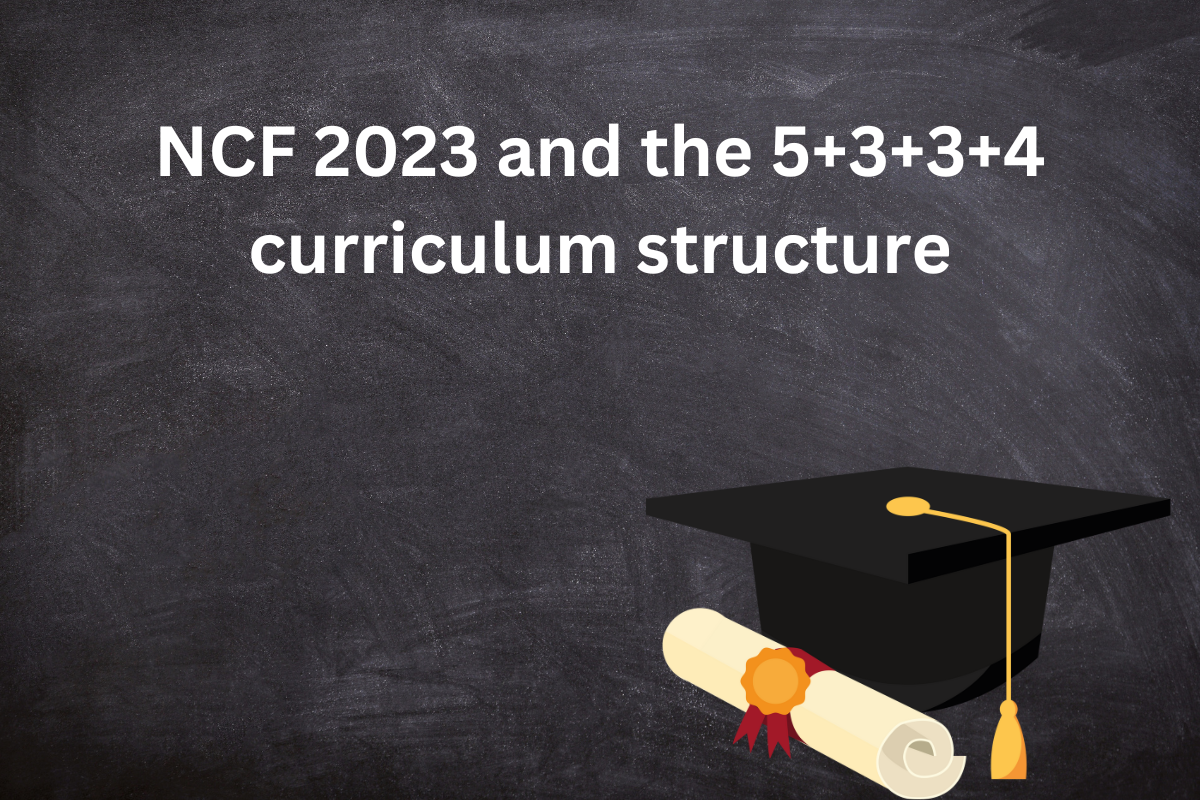NCF 2023 and the 5+3+3+4 curriculum structure
By~ Scholar Planet
Created At: 30 Sep, 2023

The National Curriculum Framework for School Education 2023 (NCF 2023)
is a comprehensive framework that guides curriculum development and
implementation in India. It is based on the National Education Policy (NEP)
2020, which envisions a transformative vision for education in India.
One of the key features of the NCF 2023 is the adoption of the 5+3+3+4
curriculum structure. This structure divides the school education system into
four stages:
Foundational stage (grades 1-2)
Preparatory stage (grades 3-5)
Middle stage (grades 6-8)
Secondary stage (grades 9-12)
Each stage is strategically designed to cater to specific developmental
milestones.
Foundational stage
The foundational stage is focused on developing the basic literacy and
numeracy skills that students need to succeed in school. It also emphasizes the
development of social and emotional skills, as well as creativity and critical
thinking.
Preparatory stage
The preparatory stage builds on the skills developed in the foundational
stage and begins to introduce students to a wider range of subjects. It also
focuses on developing students' critical thinking and problem-solving skills.
Middle stage
The middle stage is a period of rapid cognitive and emotional
development. Students in this stage begin to explore their interests and
develop their own identities. The curriculum in the middle stage is designed to
help students develop a deeper understanding of the world around them and to
prepare them for the rigors of the secondary stage.
Secondary stage
The secondary stage is a time for students to delve deeper into their
chosen subjects and to prepare for college or a career. The curriculum in the
secondary stage is rigorous and challenging, but it also offers students a wide
range of electives to choose from.
Benefits of the 5+3+3+4 curriculum structure
The 5+3+3+4 curriculum structure offers a number of benefits, including:
It is aligned with the developmental milestones of students. Each
stage of the structure is designed to cater to the specific needs and interests
of students at that age level.
The foundational stage and preparatory stage focus on developing
essential skills, which students will need to succeed in all other areas of
their education.
The middle stage and secondary stage offer a wide range of subjects and
electives to choose from, so students can find their niche and develop their
passions.
The secondary stage gives students the skills and knowledge they need to
succeed in higher education and the workforce.
Challenges of implementing the 5+3+3+4 curriculum structure
One of the biggest challenges of implementing the 5+3+3+4 curriculum
structure is the need to retrain teachers and develop new teaching materials.
The new curriculum is significantly different from the previous one, so
teachers will need to be trained on how to implement it effectively.
Additionally, new teaching materials will need to be developed to align with
the new curriculum.
The 5+3+3+4 curriculum structure is a transformative
change for education in India. It has the potential to provide all students
with a high-quality education that prepares them for success in college and the
workplace.
